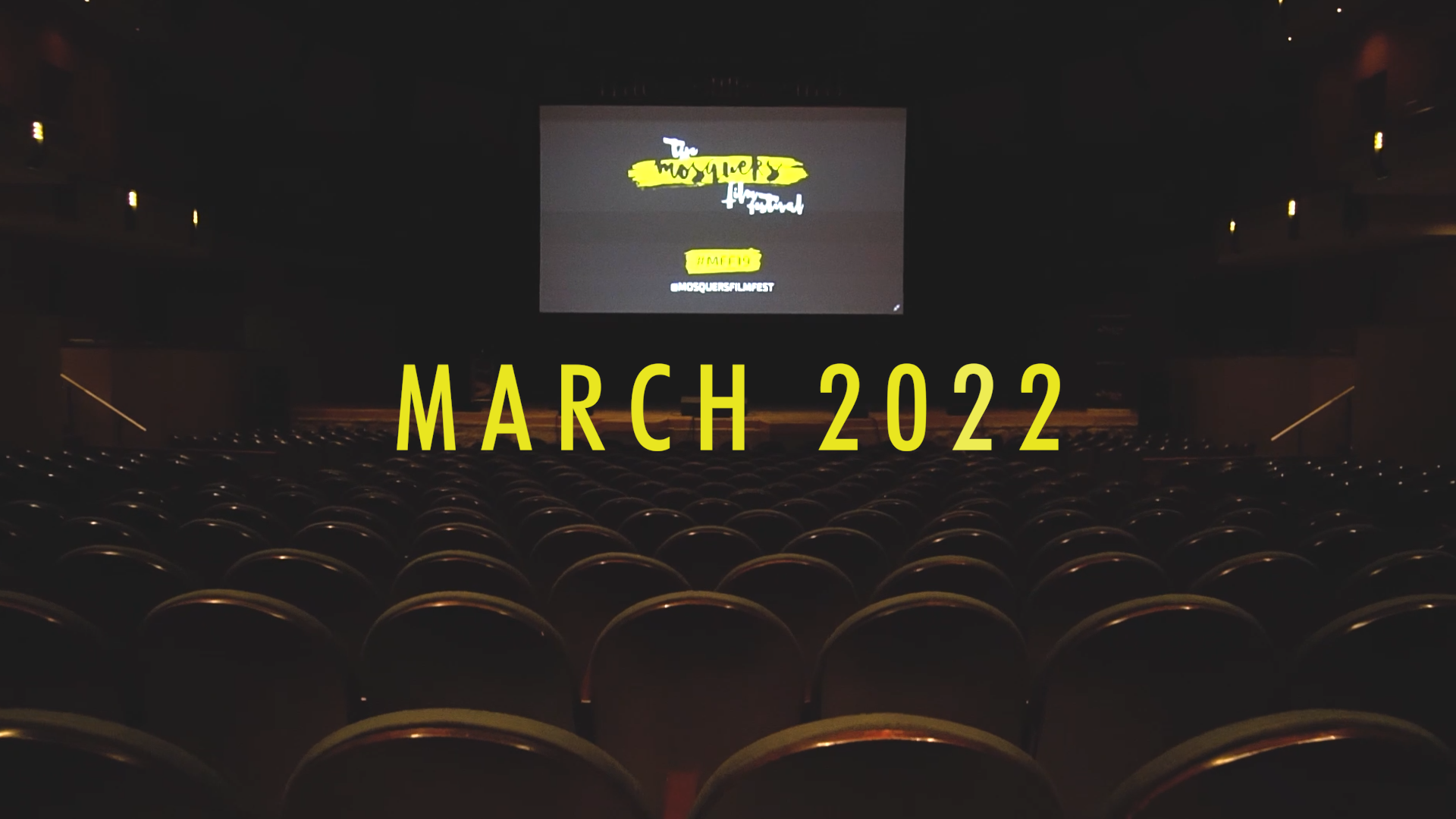By A.Jade Munsie
After a two-year hiatus during the pandemic, The Mosquers have arrived at Edmonton’s Winspear Centre to celebrate Muslim filmmaking and storytelling. Some of the Muslim community’s best and most promising short films graced the big screen in an event meant to educate and bring Edmonton together.
“When people watch these movies, they realize how similar we are. How similar our values are. How similar our culture is and our traditions are. All the things we believe in are similar.
There may be differences, but those differences can be cherished, and they can be integrated into our countries or into our communities, so at the end of the day, we become more accepting of each other, more tolerant of each other and understand just the humanity of each other,” said Yonus Shiak, the campus clubs coordinator for The Mosquers.
The Mosquers started 15 years ago when a group of students from the University of Alberta wanted to see more representation in the media. What began as a few students and a PowerPoint has grown significantly over the years.
“It grew from barely a hundred students to a thousand, two thousand people a year. It’s one of Edmonton’s biggest film festivals,” said Shiak.
The integrity of The Mosquers has remained an initiative to support the community.
“To showcase different Muslim artists and Muslim art and filmmakers, ‘cause Edmonton is one of the biggest cities for Canadian Muslims. The first Muslim community was founded here,” said Shiak.

The festival has expanded its submissions from local-based entrants to artists from all over the world. This year’s finalists include entrants from the US, Australia and the UK. Entry requires creators to tell stories that look at what it means to be Muslim and the diversity of that experience.
“We’re really seeing a diverse amount of creators. They’re coming up with issues that are very pertinent in the Muslim community but haven’t really been talked about that much,” said Shiak.
The festival has expanded its submissions from local-based entrants to artists from all over the world. This year’s finalists include entrants from the US, Australia and the UK. Entry requires creators to tell stories that look at what it means to be Muslim and the diversity of that experience.
“We’re really seeing a diverse amount of creators. They’re coming up with issues that are very pertinent in the Muslim community but haven’t really been talked about that much,” said Shiak.
The Muslim perception can be limited to how media has portrayed the faith, but there’s more depth to it, Shiak explained. It’s about sharing the truth of these lives.
“A lot of things we share are mainly from human experience. I think it really shares some of those human experiences through these movies. It’s also about establishing our community as an integral part of our country,” said Shiak.
This year, The Mosquers saw great diversity in their films. From women’s rights, mental health, basketball to companionship. Here are the winners and some finalists of this year’s event.
Ubuntu (Best Picture)
Los Angeles, USA / Aqsa Altaf
Ubuntu follows two teen boys, living their lives as friends and dealing with the notion that one of them is gay and the other is struggling to figure out his own identity. The term “Ubuntu” is often associated with “togetherness,” and the film does a beautiful job of showing what it means to be a friend, regardless of circumstances and identity.
The Fall (Best Performance)
Melbourne, Australia / Mert Berdilek
A young Syrian refugee is left to look after arrangements for her dead husband’s body–a suicide. She goes to an Islamic cleric for help. The two evolve in conversation about the theological implications of performing a burial for a suicide that ties to war, mental health, and cultural and historical matters that muster up themes of one’s purpose and duty.
The Right (Best in Technical Production)
Manchester, UK / Oz Arshad
The Right speaks to asylum seekers’ lives–people who flee their country for safety and in search of something better. The harrowing short film portrays how asylum seekers are perceived compared to what they come through.
Baladi (People’s Choice Award)
New Jersey, USA / Jenna Busco
Baladi tells a real story of a young, soccer-loving Muslim man who comes to New York searching for a better life and meets Fritzy, an older, widowed woman with a room for rent. The story parallels the two’s situation of being alone, and it shines a light on what it means to have someone.
Khalil (Best Local Picture)
Edmonton, AB / Aaima Azhar, ljlal Amir, Zainab Azhar
Friendship is a beautiful thing, and companionship has a way of defining who we are. But in it all, a loss can happen, struggles arise, and hurt comes in. Grief is a thing of life and how we deal with it speaks volumes to who we are as people. Khalil follows a young man’s growth in the loss of his friend through the reflection of their time together.
Healthy Body, Broken Mind (The Preview Award)
Winnipeg, MN / Omar Lucman
This film examines the mental effects that the pandemic has created for individuals. The stress, the monetary struggles, the loneliness, and the uncertainty of everything are at the forefront of this story—a young man doing the most he can to deal with the circumstances of the pandemic.
Night of Power
Los Angeles, USA / Tariq Mojaddidi
Night of Power is a light story about a professional basketball player sent to coach an elementary basketball team. He arrives at an interesting array of young players ranging from an over-zealous Muslim boy to an enthusiastic klutz who goes by Le-Brianne James to the scientifically correct player who doesn’t account for his lack of physicality. It’s a cute story that shows the diversity of what makes up a team, and more, what makes up a culture.
The Final Exam
Edmonton, AB / Beth MacKenzie and Ibrahim Cin
Based on a real-life experience, a devout young Muslim woman must remove her headscarf to take an exam. When a young man steps in to ensure she writes the exam, his action doesn’t come without consequence.
A Thousand Moments
Edmonton, AB / Awais Wattoo
The mind is a tricky thing. We remember so many moments in a lifetime until we don’t anymore. The theme of dementia floods this film, taking the audience on a journey of one man’s life—moments he can’t remember for himself, but photos show him. It’s an impactful story of how moments make up a life.
(cover photo from www.themosquers.com)






